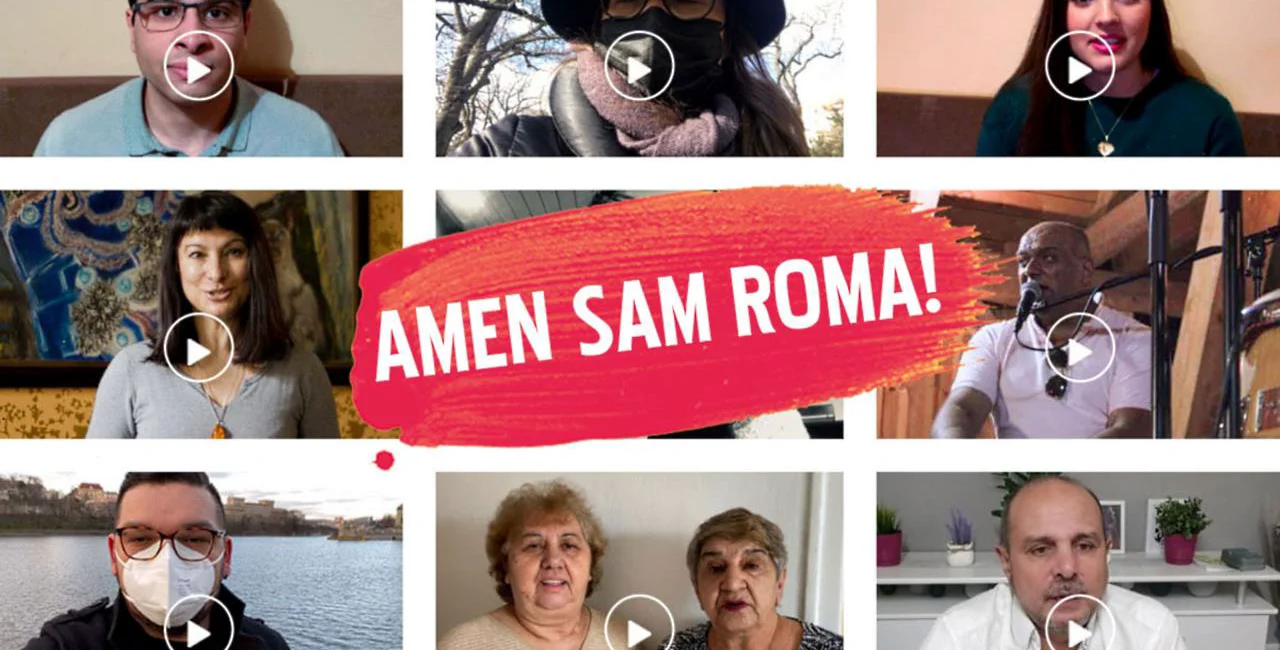Roma organizations have launched a campaign asking people to declare their Roma nationality and use of the Romani language in the Czech census that is about to start. Questions related to nationality and religion are not mandatory.
The census starts at midnight March 26–27 and continues until May 11. Forms can be filled out online until April 9, while field workers will help with the census between April 17 and May 11.
"We consider it important for Roma to declare their nationality, because the data provided by the census may affect how Roma inclusion will take place in the Czech Republic in the coming years," RomanoNet director Michal Miko said in a press release. RomanoNet in cooperation with other groups has prepared the campaign, which uses notable Roma personalities.
The organization wants to responds to Roma people’s low level of awareness of the census and also dispels the myths that are spreading about the census.
“It is astonishing how few Roma know that they can declare their Roma nationality or state both nationalities if they feel Czech and Roma. This is partly due to a lack of understanding of the difference between citizenship, which is officially determined, and nationality, where we can show free will and express belonging to the history and culture of our ancestors,” Miko said.
He says that one reason people may be reluctant to identify as Roma is that in the past, lists of Roma facilitated persecution and genocide. Another reason is that people may want to demonstrate they have integrated into Czech society and wish to be accepted as equal members.
The campaign’s videos feature ordinary as well as well-known Roma explaining why it is essential to state Roma nationality and Romani language as their mother tongue. The videos appear on the website of the group Amen Sam Roma and shared on social networks. Due to the Covid-19 pandemic, the campaign takes place exclusively in the online space.
“Video messages from Roma men and women are complemented by a video in which we explain the difference between nationality and citizenship and we also try to alleviate fears of possible misuse of the information provided,” Miko said.
No government money has gone into the campaign. “The whole campaign is paid for from the participating organizations’ resources. The state information campaign overlooked the Roma, and did not provide even a crown for them,” Nikola Taragoš, director of the civic organization Romodrom, said.
“As the representatives of Roma civil society, we think that in order to better target Roma inclusion, it is necessary to know data, for example, on the number of Roma who actually live in the Czech Republic,” Taragoš said.
Jana Horváthová, director of the Museum of Romani Culture in Brno, pointed out the importance of having an accurate count of Roma in the Czech Republic.
“The Charter of Fundamental Rights and Freedoms guarantees ethnic minorities the right to self-determination, but the exercise of this right is also linked to how many members of the minority live in the country,” she said.
“If we Roma do not declare our nationality, no one will officially consider us to be us, we will not be able to preserve and develop our culture and language,” she said, adding that she will declare both Roma and Czech nationality.
The campaign also uses a video featuring President Miloš Zeman, who criticized Roma in 2018 precisely because of the small number of Roma who declared their nationality. “We take his statements as a positive motivation, and we believe that even his words, in quotation marks, will encourage the Roma to declare their nationality,” Miko said.
RomanoNet member organizations taking part in the campaign include Romea, Romodrom, Slovo 21, Vzájemné soužití, Romano jasnica, Kleja, Awen amenca, IQ Roma servis, Společně–Jekhetane, Khamoro, Otevřená společnost, and cooperating organizations Ara Art and Tuke.TV.
In the previous census 10 years ago, just 5,135 people claimed Roma nationality, compared to 11,746 people 20 years ago, according to the Czech News Agency (ČTK).
A 2019 annual report on the Roma minority estimates that nearly 262,000 Roma people were living in the Czech Republic. Some 110,000 out of them lived in ghettos or poor shanty towns, or were threatened by social exclusion.












 Reading time: 3 minutes
Reading time: 3 minutes 

























